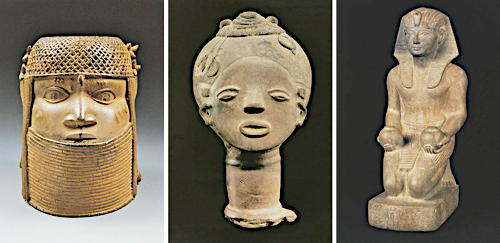Visual Culture as History in Africa

This course examines visual culture in Africa from an explicitly historical perspective. Though there are exceptions, most of the work undertaken in the field of art history has focused on traditions of the recent past-these studies have been situated in the colonial and postcolonial periods of Africa's history. Visual Culture as History in Africa offers an interdisciplinary examination of the visual cultures of pre-colonial Africa. Employing the interpretive methods of art history, archaeology, and history, we will examine artifacts and architecture from a number of African societies as historical "documents" of the past, as evidence of the social, political, religious, and economic processes that shaped these societies. This will provide a foundation for examining a related set of issues concerning how the past is perceived and exploited in the present. We will consider the modern Western ideologies that have transformed artifacts of the past into art, how these material objects have been given new meanings, new value, and how they circulate in global markets-special attention will be given to the concept of authenticity and the ethical concerns associated with collecting and exhibiting other people's cultures. We also will consider the political and economic dynamics of interpreting the past as heritage in contemporary African societies. Course components include a midterm exam, a final exam and a research paper. Class sessions will include lectures and discussion centered on a core set of readings, supplemented with periodic film and video viewings.
Category for Concentration Distributions: B. Sub-Saharan Africa, 1. Ancient, 2. Medieval, 3. Early Modern.